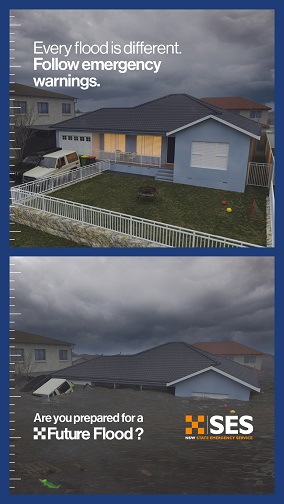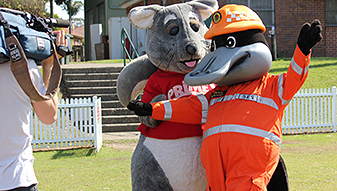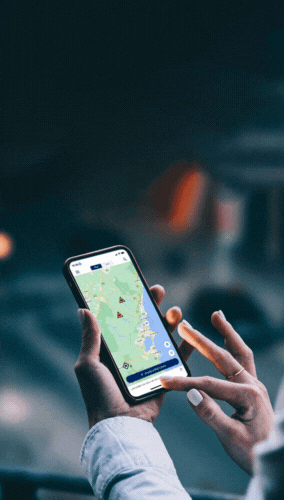
Kam Wheeler
50
-
You’d be surprised what you can bring to the Service and how you can gain new skills for your personal and professional life. It’ll be the best thing you’ve ever done.
Who are you and what is your role with the NSW SES?
I am a Youth Engagement Coordinator and Course Administrator with the NSW SES North West Capability Unit.
I come from an NSW SES family. My Dad joined not long after returning from the Vietnam War and was a volunteer for 27 years. My Mum was a volunteer for 15 years, I have been with the agency for 32 years and my son and daughter are members as well. They are the third generation from both sides of my family to be involved in an emergency service.
I just recently discovered that I’m Aboriginal Australian. It’s a real surprise to discover this part of my heritage and I’m excited to learn more.
Why did you join the NSW SES?
I started volunteering with the NSW SES when I was 14, following in the footsteps of my parents. I used to go along to the Unit with my Mum and Dad when we had flood and storm operations. I also remember my mum used to pick us up from school and take us out to the Unit.
I initially trained in Communications, then Disaster Rescue before becoming a Road Crash Rescue Operator when I was 21. Later, I went into Training Delivery and Assessment.
What is your favourite part about the NSW SES?
The pride of wearing the uniform. The community get to know you and reach out when they need help. NSW SES training can assist you in getting a job by developing teamwork, communication and problem-solving skills.
You also become part of an ever-growing NSW SES family. They are people you trust - they know that you’re there if they ever need you, and you know that you’ve always got someone to talk to. It’s fantastic to share friendships where you feel like siblings.
What skills have you learned along the way?
I’m keen to learn new things all the time. As a Trainer and Assessor, I’m now creating learning opportunities that target people with different learning abilities and experiences. I’m working on breaking down training exercises so that everybody – with different literacy, numeracy, and learning abilities - can learn. We’ve got to engage and connect with all members of the public by delivering training in a way that everyone understands.
What the most memorable experiences that you’ve had during your time with the NSW SES?
Being a part of the NSW SES cadet program helped me develop confidence to speak at a school assembly and in front of groups to help promote the Service.
The friendships that you develop in the NSW SES become a part of you.
Having my father as a NSW SES trainer was tough but I’m really grateful. He was teaching me things that I didn’t realise at the time. He used to say to me, “Once we’re in the uniform, we’re not father/daughter, we are team members/colleagues.” We were in the NSW SES together for about 14 years. I got some awesome feedback from him when I became a trainer which helped me improve.
What would you say to anyone who is thinking about joining the NSW SES?
Just do it. You don’t realise what skills you’ve got. You’d be surprised what you can bring to the Service and how you can gain new skills for your own personal and professional life. It’ll be the best thing you’ve ever done.
To show support for reconciliation between Aboriginal and Torres Strait Islander peoples and the wider Australian community, what are some ideas for building a culturally safe NSW SES?
Encourage people from all nationalities to join and learn from them. There’s a lot of Aboriginal traditional knowledge that’s not on paper. Elders are local encyclopaedias. If we work together and learn together, we can achieve common goals together in the future.
Thinking about becoming a volunteer like Kam but not sure what you'd like to do?
Learn more out about our various Volunteering Roles


